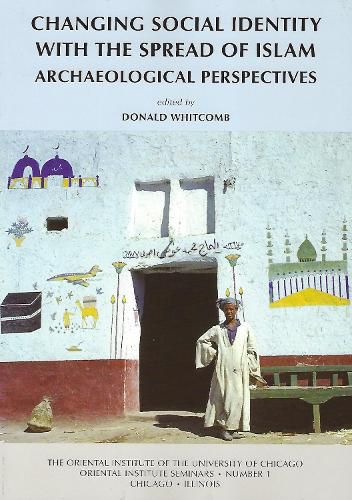Readings Newsletter
Become a Readings Member to make your shopping experience even easier.
Sign in or sign up for free!
You’re not far away from qualifying for FREE standard shipping within Australia
You’ve qualified for FREE standard shipping within Australia
The cart is loading…






This volume addresses the topical interest in Islam, studying the process of its spread throughout the medieval world and the process of conversion to this religion and adoption of its cultural life. The evidence is presented in a series of essay reports on archaeological approaches in current Islamic Archaeology. These papers are the result of a seminar that attempted a comparative analysis of widely different regions and periods, based on archaeological monuments or artefacts, exploring processes of adaptation or adjustment to local cultural complexes. Islam may be seen as a religion, political system, and cultural complex, a trinity of inseparable aspects. The introduction of these variable characteristics of Islam, during initial contact and afterwards, resulted in changes in identity approached as a sort of cognitive archaeology. In each specific case, the author assesses the nature of the pre-Islamic regional tradition, the resulting plurality of cultures as a multi-cultural society, and finally a resultant normative condition as a regional or cosmopolitan culture. This exposure to unfamiliar subjects and archaeological perspectives offers a potential for more abstract, comparative modelling in future historical research.
$9.00 standard shipping within Australia
FREE standard shipping within Australia for orders over $100.00
Express & International shipping calculated at checkout
This volume addresses the topical interest in Islam, studying the process of its spread throughout the medieval world and the process of conversion to this religion and adoption of its cultural life. The evidence is presented in a series of essay reports on archaeological approaches in current Islamic Archaeology. These papers are the result of a seminar that attempted a comparative analysis of widely different regions and periods, based on archaeological monuments or artefacts, exploring processes of adaptation or adjustment to local cultural complexes. Islam may be seen as a religion, political system, and cultural complex, a trinity of inseparable aspects. The introduction of these variable characteristics of Islam, during initial contact and afterwards, resulted in changes in identity approached as a sort of cognitive archaeology. In each specific case, the author assesses the nature of the pre-Islamic regional tradition, the resulting plurality of cultures as a multi-cultural society, and finally a resultant normative condition as a regional or cosmopolitan culture. This exposure to unfamiliar subjects and archaeological perspectives offers a potential for more abstract, comparative modelling in future historical research.